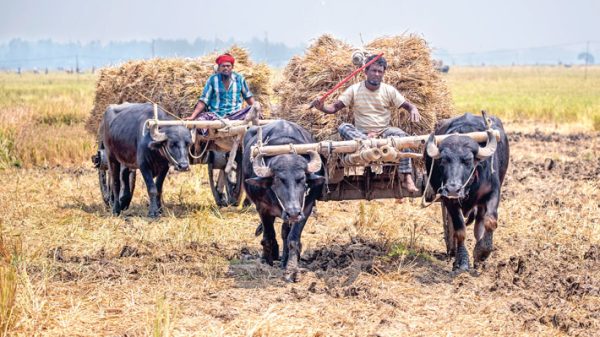Record Boro output expected

- Update Time : Thursday, May 4, 2023
- 63 Time View

Bangladesh is set to see an increase of 1 million tonnes of rice compared to the previous year, thanks to a good harvest and increased acreage in the current boro season.
This achievement comes despite challenges such as rising fertilizer and irrigation costs.
The Department of Agriculture Extension (DAE) initially aimed to produce 21.7 million tonnes of Boro rice from 4.9776 million hectares of land this year. However, farmers cultivated boro on 5 million hectares, which will result in even more rice for the country’s food basket.
Agriculture Minister Dr. Muhammad Abdur Razzaque announced on Sunday that they anticipate a record-high output of around 22 million tonnes of rice this boro season.
The minister also noted that while the production target was initially set at 21.5 million tonnes, the increased acreage will lead to higher rice production.
“Paddy harvesting in the Haor region has been completed by 90 percent till Sunday. Harvesting of paddy with a combined harvester allows saving money along with a quick harvest,” he added.
The boro season accounts for 55 percent of the country’s total rice demand. To secure production and increase the food basket, the government has taken various measures, including expanding the acreage under cultivation and promoting high-yielding paddy under official supervision.
DAE officials also mentioned that farmers have been cultivating newly invented HYV rice varieties, which offer finer quality and higher grain yields.
Hybrid paddy cultivation has grown from 13.29 lakh hectares in the previous year to 14.041 lakh hectares, as reported by the DAE.
Rice production in Bangladesh has tripled since the country’s liberation and has ranked third globally in rice production for the fourth consecutive year as of 2022.
The Food and Agriculture Organisation (FAO) published the ranking in its report, ‘Food Outlook-June 2022’.
In 2019, Bangladesh produced 36.5 million tonnes of rice and ranked third in the world for the first time.
The country maintained its position, with production levels of 37.4 million tonnes in 2020 and 37.8 million tonnes in 2021, according to the FAO report.
Bangladesh currently ranks behind India and China, with Indonesia in fourth place.















